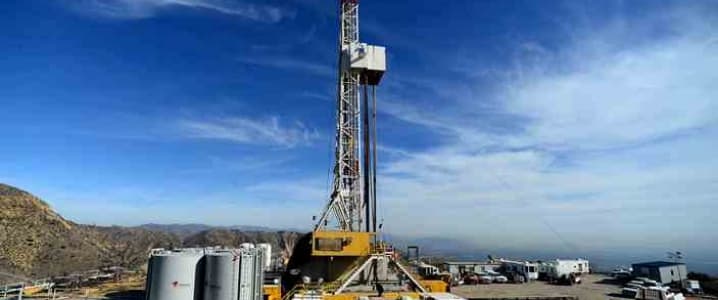Europe just lost a big chunk of production from one of its most critical natural gas fields, and not for any of the usual reasons — technical problems, pipeline constraints, or terrorist disruptions.
These cuts are due to earthquakes.
The development came at the Groningen natgas field in the Netherlands. The largest producing field in Western Europe — and one of the world’s top 10 gas fields by size.
Groningen’s massive size has been an issue lately though, with drawdown from the field having caused seismic events in the areas above and surrounding the field.
Such concerns prompted the Dutch government to take action Friday. With the country’s Economics Minister Henk Kamp saying that regulators will reduce Groningen’s permitted output by 11.1 percent — to 24 billion cubic meters per year (850 billion cubic feet), down from a previous allowance of 27 billion cubic meters.
Minister Kamp also said that the reduced production quota will stay in effect for the next five years. This means that Europe has lost a significant slice of its go-to production for the foreseeable future.
This latest production cut continues a dramatic slide in Groningen’s output over the past 18 months. With the Dutch government deciding in early 2015 to cut production from 42.5 billion cubic feet annually to 39 billion cubic feet — and then further reducing the quota to 33 billion cubic feet just a few months later. Related: Analyzing The 2016 BP Statistical Review
The further cuts announced Friday come after high-level Dutch regulatory body the Council of State ordered the government to take more action in protecting the public. With Minister Kamp saying that the new production cap would “reduce safety risks to Groningen’s residents and damage to buildings.”
The Minister did say that production could be increased above the quota in the event of exceptionally cold weather or other instances of strict necessity. But overall it appears that Groningen’s output is going to be 44 percent lower than it was less than two years ago — which could put upward pressure on prices in the European market.
That could have a number of knock-on effects. Including attracting more liquefied natural gas (LNG) to Europe — with countries here having a lot of under-used import capacity right now. Watch for the effects of the Dutch shut-in on prices — and structural changes in this market as a result.
Here’s to not rocking the boat,
ADVERTISEMENT
By Dave Forest
More Top Reads From Oilprice.com:
- The Oil Industry Needs To Change Its Strategy And Fast
- Nuclear Energy May Be A Key Tool In The Climate Change Fight
- Jordan Investing Heavily In Renewables


















